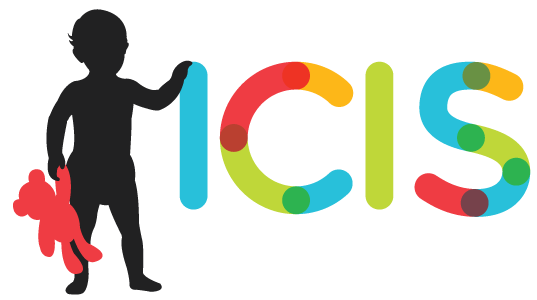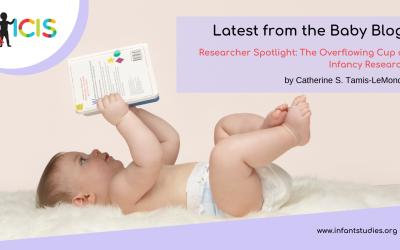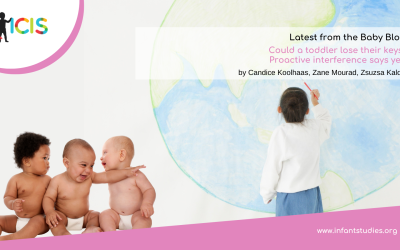by Abigail Fiske, Gaia Scerif, & Karla Holmboe
There is no question that the COVID-19 pandemic has changed the world. It is hard to ignore the visible impact – the rising and falling of infection rates, the “stay at home” restrictions, and the incredible scientific advances that brought us life-saving vaccines. Yet there are some impacts which, although not so visible, have nonetheless changed everyday life profoundly. This is particularly true for mothers and their infants. A world that was once in three-dimensions, with a social support network, grandparents offering hug and kisses in abundance, the freedom to run, play, and share new adventures each day. An entire world that, at the start of the pandemic, was reduced to two-dimensions: living and learning through a computer screen, from behind masks and closed doors — a whole new world.
It is therefore not surprising that early in the pandemic, there were emerging reports of increased depressive symptoms and anxiety in mothers of young children around the globe1. In light of the well-known links between maternal mental health and early childhood temperament 2–4, we must consider the potential consequences that changes in maternal mental health could have on the development of temperament in early childhood.
In this blog post, and in our recent research study, we probe the question: “What impact has the COVID-19 pandemic had on maternal mental health and early childhood temperament?”
Capturing the experiences of mothers with young children
In March 2020 in the United Kingdom, the pandemic was unfolding at an alarming rate. Schools, pre-schools, and nurseries were closed, and the public were instructed by law to stay at home and remain socially distant from their families. We wanted to capture this unprecedented situation and the impact that this could have on the lives of families with young children. To do so, we developed the “COVID-19 Impact Questionnaire for Families with Young Children” which assessed the specific pandemic-related impacts on maternal mental health as well as on everyday family life.
During the first (April 2020) and second (November 2020) national lockdowns, we sent online questionnaires to a large sample of mothers of young children (aged 6 – 48 months) who were taking part in an ongoing longitudinal study. From this, we quickly gained subjective reports of how the pandemic had changed the world of mothers with young children. For example, one mother explains the severe impact of the pandemic on her mental health:
“Although my anxiety levels and stress levels are through the roof as a result of this pandemic, it is not the bug that has caused this…it is the impact of being stuck at home, having had all support networks ripped away…The impact of the pandemic on our mental health is horrific, and the damage is going to last for years.”
Maternal mental health during the COVID-19 pandemic
Additionally, we gained an index of pandemic-related stress by compiling ten questionnaire items into a ‘COVID-19 Stress Scale’. These included questions about negative feelings relating specifically to the pandemic such as levels of stress, worry, anxiety and depression. Interestingly, mothers’ pandemic-specific COVID-19 stress score was significantly higher in April than in November, suggesting that overall pandemic-related stress declined from the first to the second national lockdown. Mothers also completed a well-validated depression questionnaire 5, which provided us with a more global measure of their depressive symptoms. In contrast to existing during-pandemic research, we observed no significant increase in maternal depressive symptoms across the pandemic.
What about the impact on early childhood temperament?
Maternal reports of infant and early childhood temperament (using gold-standard early childhood temperament questionnaires 6,7 indicated a significant increase in effortful control (the effective use of strategies to regulate emotions and behaviour) across the pandemic, and no significant change in ratings of negative affect (negative emotionality) or surgency (positive affect/extraversion). We also observed longitudinal and concurrent associations between maternal depressive symptoms and child temperament across the pandemic. Since we found no associations relating to COVID-19-specific stress, and no discernible negative effect of the presence of pandemic on child temperament in pre- to during-pandemic analyses, we have no evidence to suggest that these associations are a consequence of the pandemic. Instead, it is possible that these effects would typically be expected at this point in development, although further research is needed to confirm this.
An important consideration
It is key to note that potential pandemic effects on both child temperament and maternal well-being might be crucially moderated by the age of children sampled by individual studies. For example, studies focusing on mothers during pregnancy or the early post-partum period may be capturing an elevation of pregnancy-related stressors or depressive symptoms as a result of negative pandemic-related changes, such as difficulty in accessing healthcare and social support. In contrast, studies surveying mothers of school-aged children are likely capturing an entirely different set of challenges during the pandemic, such as the pressures of school closures, home-schooling and financial difficulties from reduced work hours. In our study, we captured the experiences of mothers with young children (under 4 years of age) and, in doing so, have contributed to the shared effort of gathering knowledge about the differential impact of the COVID-19 pandemic on diverse groups within the population.
So, what does this all mean?
In a time where we are all adapting to a new world in which there are many negative consequences of the COVID-19 pandemic, we are pleased to report no distinct impact of the pandemic on maternal depressive symptoms and the typical development of temperament across infancy and early childhood. Of course, these findings relate primarily to the initial stages of the pandemic, and an important caveat is that our sample consisted of primarily White British mothers living in an affluent part of the UK.
We strongly encourage further longitudinal during-pandemic studies that can help to establish whether the resilience of temperament development found in our study also applies in more disadvantaged and at-risk populations of mothers and children, both throughout the UK and across the globe.
This blog post is based on the authors’ recent longitudinal research on maternal depressive symptoms and early childhood temperament during the pandemic: Fiske, A., Scerif, G., & Holmboe, K. (2021, July 2). Maternal depressive symptoms and early childhood temperament before and during the COVID-19 pandemic in the United Kingdom. https://doi.org/10.31234/osf.io/quket. See also our project on the Open Science Framework website for further information and open access to data associated with this study [https://osf.io/zg97d/].
References
- Hessami, K., Romanelli, C., Chiurazzi, M. & Cozzolino, M. COVID-19 pandemic and maternal mental health: a systematic review and meta-analysis. Journal of Maternal-Fetal and Neonatal Medicine (2020) doi:10.1080/14767058.2020.1843155.
- Shapiro, A. F., Jolley, S. N., Hildebrandt, U. & Spieker, S. J. The effects of early postpartum depression on infant temperament. Early Child Dev. Care 190, 1918–1930 (2018).
- Spry, E. A. et al. Maternal and paternal depression and anxiety and offspring infant negative affectivity: A systematic review and meta-analysis. Dev. Rev. 58, 100934 (2020).
- Rigato, S., Charalambous, S., Stets, M. & Holmboe, K. Maternal depressive symptoms and infant temperament in the first year of life predict child behaviour at 3 years of age. (2020) doi:https://doi.org/10.31234/osf.io/j2de8.
- Beck, A. ., Steer, R. . & Brown, G. Beck Depression Inventory- II. (APA PsycTests, 1996). doi:https://doi.org/10.1037/t00742-000.
- Putnam, S. P., Helbig, A. L., Gartstein, M. A., Rothbart, M. K. & Leerkes, E. Development and assessment of short and very short forms of the Infant Behavior Questionnaire-Revised. J. Pers. Assess. 96, 445–458 (2014).
- Putnam, S. P., Gartstein, M. A. & Rothbart, M. K. Measurement of fine-grained aspects of toddler temperament: The Early Childhood Behavior Questionnaire. Infant Behav. Dev. 29, 386–401 (2006).
If you have expertise in covid-related issues in countries outside the United States and would like to write a post for the ICIS Baby Blog, please let us know!
About the Author

Abigail Fiske
University of Oxford

Dr. Karla Holmboe
University of Oxford

Professor Gaia Scerif
University of Oxford




